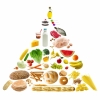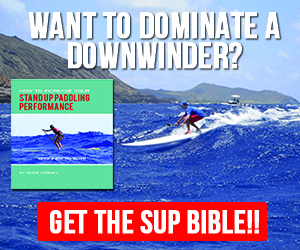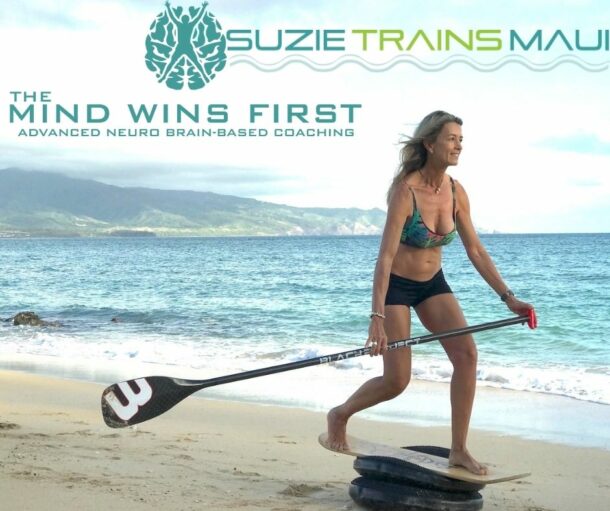
8 Common Nutrition Mistakes…and How to Fix Them
No time is No Excuse!

By Nancy Clark, MS RD CSSD
For Active.com
Nutrition may be your missing link in training. Here are eight common nutrition mistakes many athletes make with tips and recipes for how to solve them.
No. 1: Beneficial Protein Intake
Some athletes eat too little protein; others eat too much. For example, a 150 lb (68 kg) athlete may need 0.5 to 0.75 g pro/lb (1-1.5 g pro/kg); this translates into about 75 to 105 g pro/day. This athlete can easily consume too much protein if the foundation of the menu is:
| Breakfast: | 6 egg whites | 18 grams of protein |
| Lunch: | 1 can of tuna | 35 grams |
| Snack: | 1 protein bar | 20 grams |
| Dinner: | 2 chicken breasts | 90 grams |
| 16 oz. milk | 16 grams | |
| Total: | 179 grams |
This amount of protein is excessive, to the point some of the protein could be wisely traded for more carbs to better fuel the workouts.
In contrast, a vegetarian athlete on a reducing diet could easily under consume protein if foundation of the menu is:
| Breakfast: | 2 egg whites | 7 grams of protein |
| Lunch: | salad with 1/4 cup of chickpeas | 3 grams |
| Dinner: | 1 garden burger | 11 grams |
| Total: | 21 grams |
Too little protein contributes to poor recovery, muscle wasting, and sub optimal results from hard training.
Solution: By meeting with a sports dietitian, you can learn your protein requirement and how to translate that into food.
No. 2: Iron to Prevent Fatigue From Anemia
Iron-deficiency anemia is common, particularly in females. Anemia causes needless fatigue and reduced performance. A survey of collegiate athletes indicates 20 percent of the female volleyball and basketball players were anemic, as were 50 percent of the soccer team. (1)
Anemia is particularly common among women who have heavy menstrual blood losses, but eat neither red meat nor iron-enriched breakfast cereal.
Solution: If you feel needlessly tired, get your blood tested by your doctor and be sure to get your serum ferritin measured. To help prevent anemia, strive to eat an iron-rich diet of:
red meat, or iron-rich alternatives (dark-meat chicken or turkey, salmon, tuna) iron-fortified cereals (Wheaties, Raisin Bran, Total)
To enhance iron absorption, include with each meal a source of vitamin C, such as orange juice, berries, broccoli, tomato or other fruits and vegetables.
No. 3: Post-exercise Food
At the end of a hard workout, you haven’t finished your training until you have refueled. Don’t rush off to work or school, with “no time to eat” as the excuse.
Solution: Plan ahead, so you have recovery foods readily available. Even in a time-crunch, you should be able refuel your muscles properly. “No time” is no excuse.
No. 4: Recovering With Both Carbs + Protein
Recovery foods should offer a foundation of carbs with protein as the accompaniment. A reasonable target is about 240 calories of carbs (60 g carb) and about 80 calories (20 g) of protein. Some popular choices include Greek yogurt with honey, chocolate milk, cereal with milk, and pasta with meat sauce. You need not buy engineered recovery foods; standard fare works fine.
 Note that recovery foods can be eaten pre-exercise. That is, a pre-exercise yogurt gets digested into amino acids and glucose; those food components will be ready and waiting to be put into use when you stop exercising. In a 10-week study with recreational body builders, those who consumed a protein-carb supplement both immediately before and right after the mid-afternoon strength training session gained 2.3 pounds more muscle and 7 pounds more in strength (as measured by bench press), compared to the group without the pre- and post-exercise fuel. (2)
Note that recovery foods can be eaten pre-exercise. That is, a pre-exercise yogurt gets digested into amino acids and glucose; those food components will be ready and waiting to be put into use when you stop exercising. In a 10-week study with recreational body builders, those who consumed a protein-carb supplement both immediately before and right after the mid-afternoon strength training session gained 2.3 pounds more muscle and 7 pounds more in strength (as measured by bench press), compared to the group without the pre- and post-exercise fuel. (2)
Athletes who do two workouts a day really need to rapidly refuel with a proper recovery diet. A six-week study with swimmers reports those who did two workouts (morning and afternoon) sprinted slower than those who swam only in the afternoon (3). If nutrition is your missing link, don’t even think about double workouts.
Solution: You may not feel hungry for solid foods after a hard bout of exercise, but you are likely thirsty. A fruit smoothie (made with yogurt) is excellent for recovery, as is a chug of chocolate milk. Both contain carbs to refuel, and protein to build and repair muscles and reduce muscle soreness.
No. 5: Rest Days for Muscles to Refuel
 Rest is an important part of a training program; muscles need time to refuel and heal. Depleted muscles may need more than 24 hours to replace glycogen stores. Hence, rest days with little or no exercise enhance a training program.
Rest is an important part of a training program; muscles need time to refuel and heal. Depleted muscles may need more than 24 hours to replace glycogen stores. Hence, rest days with little or no exercise enhance a training program.
Athletes who want to lose weight commonly hesitate to take a rest day; they fear they will “get fat.” These athletes need to understand:
1) On a rest day, they will feel just as hungry because the muscles need food to refuel.
2) They will gain (water) weight. For each 1 oz. of glycogen, the muscles store about 3 oz. water. This water gets released during exercise; it is beneficial.
Solution: Plan one to two rest days a week. Notice how much better you are able to perform the day after a rest day.
No. 6: Adequate Fluids
Solution:
Athletes who stay well hydrated can train harder and perform better. For each one percent of body weight lost via sweat, your heart has to beat three to five more times per minute (4). This creates needless fatigue.
Solution: If you are well-hydrated, you will need to urinate every two to four hours, and your urine will be a light color. If you are sweat heavily, you really should learn how much sweat you lose (and thereby need to replace) during a workout. Do this my weighing yourself naked before and after exercise. For each pound (16 oz.) of sweat, you should drink at least 16 to 24 oz. of fluid.
No. 7: Sodium Before Exercise in the Heat
No. 8: The Sports Dietitian
(RD, CSSD)
Serious athletes generally have a support crew that includes a coach, sports psychologist, and a medical doctor, physical therapist and massage therapist. But to their detriment, some fail to have a sports dietician on their team.
Solution: To get the most from your workouts, find a local registered dietitian who is a Board Certified Specialist in Sports Dietetics (RD CSSD).
The bottom line: Don’t let nutrition be your missing link. You will always win with good nutrition.
Nancy Clark MS, RD counsels casual exercisers and competitive athletes at Healthworks, the premier fitness center in Chestnut Hill, MA (617-383-6100). Her NEW 2008 Nancy Clark’s Sports Nutrition Guidebook 4th Edition, and her Food Guide for Marathoners and Cyclist’s Food Guide are available via https://www.nancyclarkrd.com/.
References
1. Eichner, R. Anemia and Blood Boosting. Sports Science Exchange #81, Vol 14(2), 2001
2. Cribb, P., and A. Hayes. 2006. Effects of supplement timing and resistance exercise on skeletal muscle hypertrophy. Med Sci Sports Exerc 38(1):1918-1925.
3. Costill, D.L., R. Thomas, R.A. Robergs, et al. 1991. Adaptations to swimming training: Influence of training volume. Med Sci Sports Exerc 23(3):371-377.
4. Casa D., L. Armstrong, S. Montain, et al. 2000. National Athletic Trainers’ Association position statement: Fluid replacement for athletes. J Athletic Training 35(2):212-224.
5. Sims, S.T., L. van Vliet, J. Cotter, and N. Rehrer. 2007. Sodium loading aids fluid balance and reduces physiological strain of trained men exercising in the heat. Med Sci Sports Exerc 39(1):123-130.




